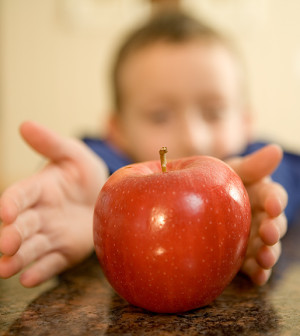- Could Your Grocery Store Meat Be Causing Recurring UTIs?
- Are You Making This Expensive Thermostat Error This Winter?
- Recognizing the Signs of Hypothyroidism
- 10 Strategies to Overcome Insomnia
- Could Artificial Sweeteners Be Aging the Brain Faster?
- Techniques for Soothing Your Nervous System
- Does the Water in Your House Smell Funny? Here’s Why
- Can a Daily Dose of Apple Cider Vinegar Actually Aid Weight Loss?
- 6 Health Beverages That Can Actually Spike Your Blood Sugar
- Treatment Options for Social Anxiety Disorder
Study: Exposure to Diversity Might Boost Baby’s Social Skills

Exposure to diverse communities may boost infants’ social learning, according to a new study.
Hearing different languages in the park or supermarket could help children be open-minded and willing to learn from people who are different from them, researchers found.
“Research has shown that children, like adults, are often biased against interacting with and learning from people who are different from them,” said Amanda Woodward, a University of Chicago psychology professor, said in a university news release.
Early exposure to diversity could prevent children from developing these biases, the study’s authors said.
“In this new study, we found that these fairly young babies are tuning into the social world outside of their home environment. The exposure to diversity may help protect against the development of a bias very early in life,” said Woodward.
For the study, to be published in the November issue of the journal Cognition, the researchers examined data from experiments involving 82 toddlers. The 19-month-old children, who lived in English-speaking households, took cues from an adult who either spoke English or Spanish.
The researchers also analyzed U.S. Census Bureau data to determine the prevalence of non-English languages spoken in the children’s neighborhoods.
“We were interested in linguistic diversity — that is, how many different languages babies might hear,” said the study’s lead author Lauren Howard, a psychology doctoral student. “All of the babies in our study heard only English from their parents and caretakers. But they lived in neighborhoods where multiple languages were spoken.”
The experiments tested how well the toddlers could learn from a non-English speaking person. The study found that infants who heard a diversity of languages in their neighborhoods were more likely than infants from less diverse neighborhoods to take direction from Spanish-speaking adults.
“Babies from more diverse communities learned and imitated more of the Spanish speaker’s actions,” said Howard. “Our findings showed that hearing those languages outside the home, for example at the park or on the bus, made infants more open to learning from someone who did not speak English.”
Woodward said the study provides evidence that infants’ social learning is shaped by the diversity of the neighborhood in which they live, even if they don’t have direct interaction with people who speak other languages, added Woodward.
More information
The University of South Alabama provides more information on social learning.
Source: HealthDay
Copyright © 2026 HealthDay. All rights reserved.










